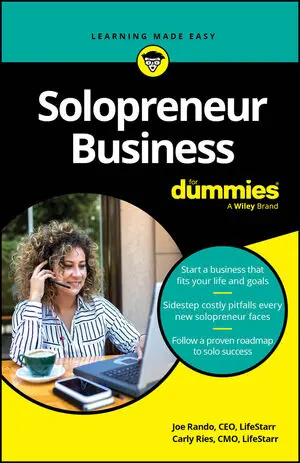If you run a retail business or even work in a store or for an online marketer, knowing retail-business terms is key. The following list contains key terms you need to know so that you can stay on top of the retail market:
| add-on sale: Additional items a customer buys due to suggestive selling. | e-mail marketing: Sending customers friendly reminders, newsletters, and special event announcements via e-mail. | pay-per-click advertising: Sponsored links on the top or right side of a Web page. You pay only when someone clicks through to your site. |
| allowance: Any price reduction given for a multitude of reasons ranging from slightly defective merchandise to a late delivery. | factor: A bank or finance company that buys the receivables from a manufacturer. The retailer then pays the factor for the merchandise rather than paying the vendor. | profit and loss statement (P&L): An accounting report that highlights revenues, cost of goods sold, and net profit. |
| A.T.S.: Your average transaction size. | free on board (FOB): The point when the shipping costs become the responsibility of the retailer rather than the vendor. | purchase order: The actual form used for placing an order. |
| beginning of the month inventory (BOM): Physical inventory in the store at the beginning of the month. | guaranteed sale: A vendor’s promise to take back unsold merchandise and issue either a refund or a merchandise credit toward other goods. | rate card: The price list used primarily in the world of advertising. |
| blog: A free interactive Web site that allows a business to get closer to its customers and position itself as an expert. | jobber: A distributor who buys merchandise to be resold to the retailer. | resale number: A state-issued identification number allowing a retailer to buy merchandise without having to pay sales tax. This number and certificate are also used for admission into most trade shows. |
| bottom feeders: Customers who buy only clearance merchandise. | keystone: A price for merchandise that is double the wholesale price. | run of paper (ROP): A newspaper advertising term used when placing an ad indicating that the ad can be placed anywhere within the newspaper. |
| call tag: A specific freight carrier’s written authorization for customers to return merchandise to the retailer at no cost. | layaway: Storing merchandise for a customer for a later purchase, usually requiring a deposit and a time limit for the transaction. | show special: A price incentive offered by manufacturers to induce buyers to place orders at a trade show. |
| charge back: Deductions on an invoice taken by the retailer for damages, freight allowances, shortages, and so on. | logo: A symbol of the written name of a business; used to represent the business. | stock keeping unit (SKU): A number assigned by a store to identify the manufacturer, style number, size, color, and unit price of a piece of merchandise. |
| consignment merchandise: Merchandise the retailer does not own or pay for until it is sold. | markdown: The difference between the original retail price and the reduced price. | store front: Any place where a customer can buy from you, whether a brick-and-mortar store, your own Web site, or an account on eBay or Amazon.com. |
| deep and narrow: Large quantities of a small selection of merchandise. | markup: The amount of money added to the wholesale price to obtain the retail price. | substitution: Occurs when a vendor substitutes one style for another on an open order. |
| dog: Slang term for merchandise that is not selling. | off price: Merchandise that is purchased for less than regular price. | U.P.T.: Units per transaction. A measurement that takes an average of the amount of items sold during each sales transaction. |
| end of month (EOM): A term referring to either the payment of invoices due at the end of the month in which the merchandise was shipped or the amount of physical inventory in the store at the end of a month. | open to buy: Budgeted amount of merchandise still open to be purchased for a specific time period. | Web site optimization: Preparing your Web site so that search engines are able to find it easily. |






